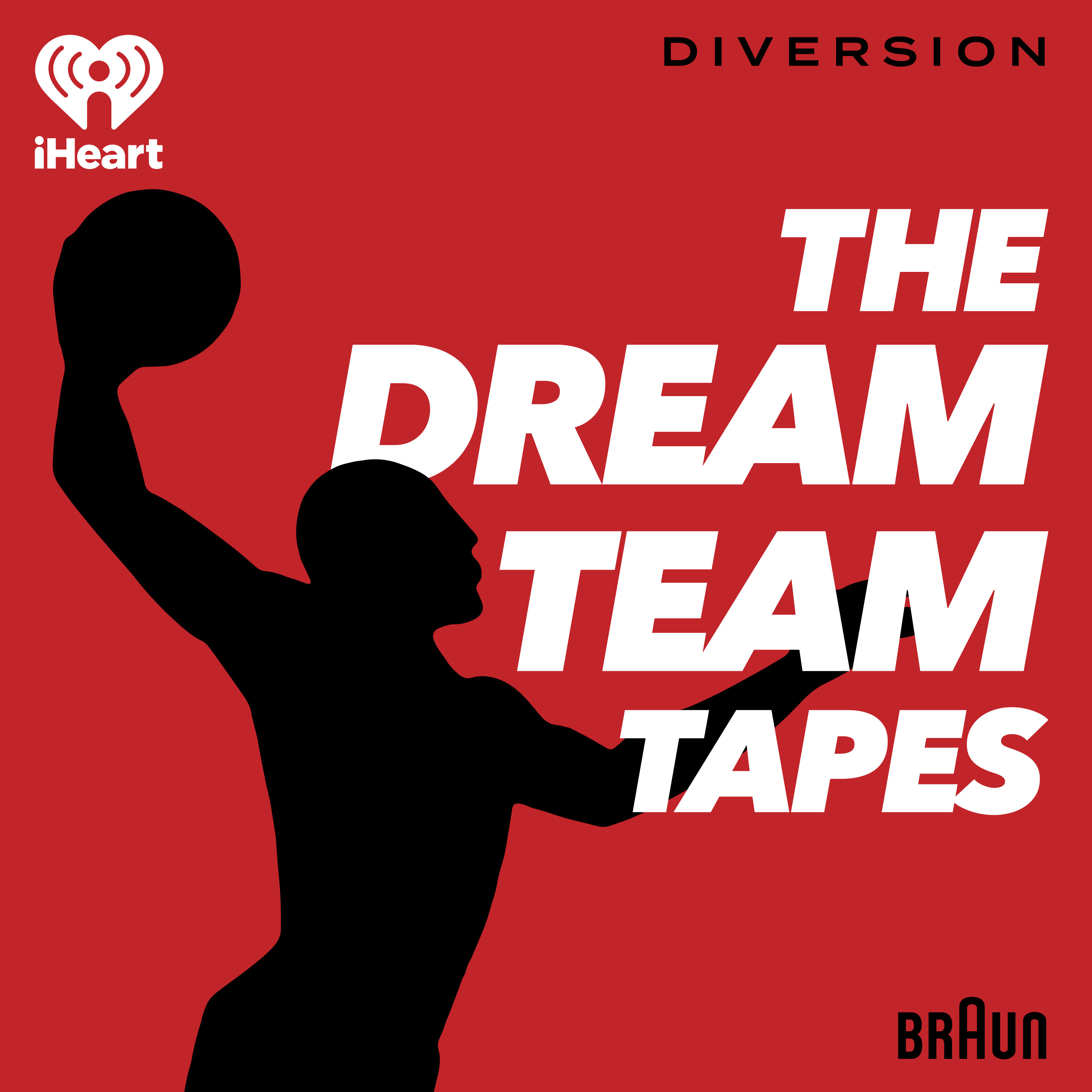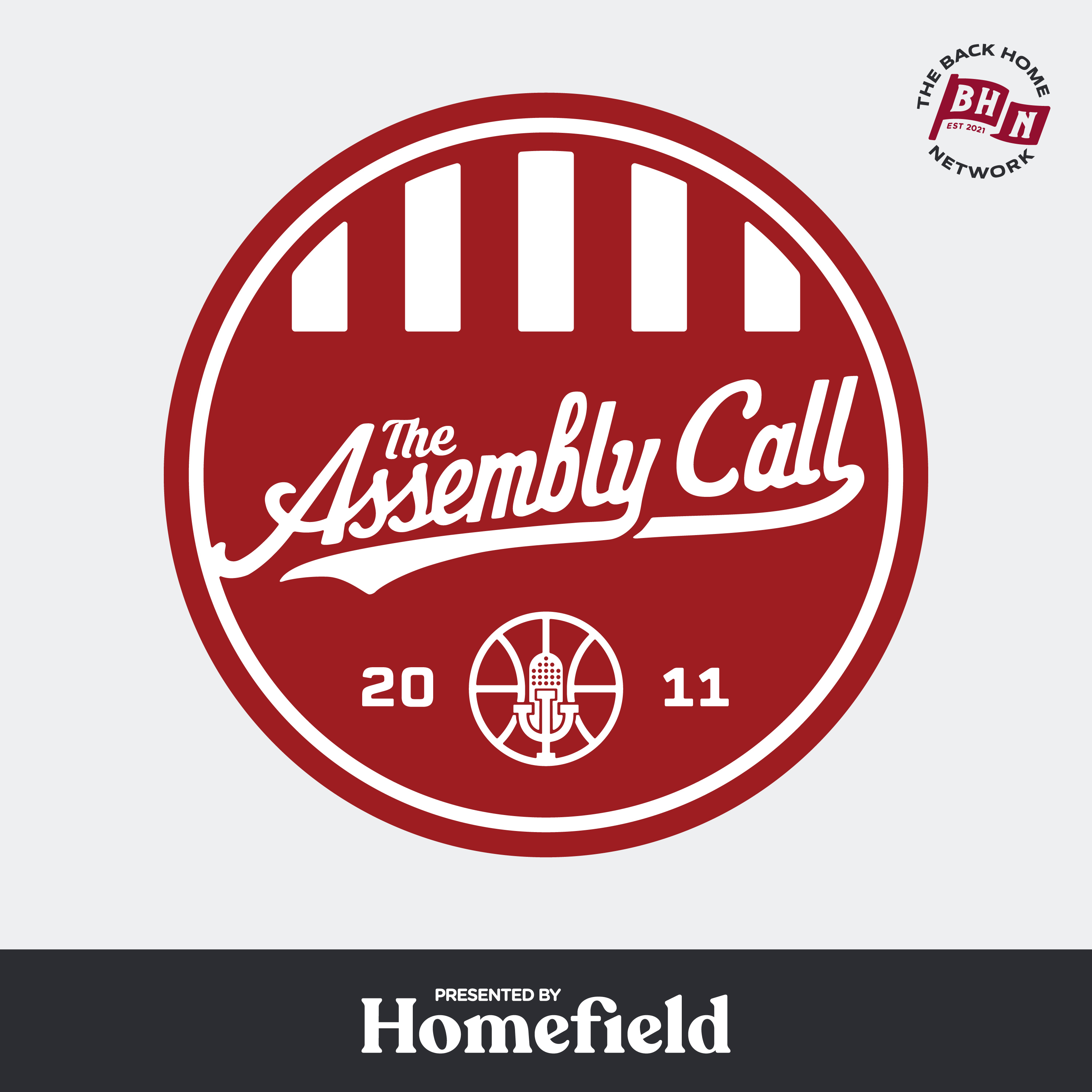
Iconic Seasons | Hardwood History
Iconic Seasons is a podcast that takes you back to the greatest college basketball seasons of all time. Through the voices of players, coaches, and journalists, we relive the excitement, the drama, and the unforgettable moments that made these moments and seasons iconic.
We use interviews, audio from the games, as well as scripted storytelling, to bring the past to life.
Whether you're a die-hard college basketball fan or just a casual observer, Iconic Seasons is a must-listen for anyone who loves basketball and basketball culture.
Iconic Seasons | Hardwood History
Dynasties are Dead: How the NBA Shifted from Legends to Parity | Iconic Seasons
In the season finale of Iconic Seasons: Trailblazing, we trace the fall of NBA dynasties—from Bill Walton’s broken promise in Portland to Jordan’s Bulls and Curry’s Warriors—into today’s era of chaos and parity. Why have dynasties died, and can Oklahoma City revive one? Explore the legacy, culture, and power struggles that shaped basketball’s past and future.
Did you know we are one of the Top 30 Collage Podcasts in the World!
https://podcast.feedspot.com/college_basketball_podcasts/?feedid=5529823&_src=f1_featured_email
Support the Pod or Binge the Entire Season Now!
Connect on Social
This is Iconic Seasons, and you're listening to the final chapter of our journey, episode five, the Death of Dynasties. Over the last four episodes, we've traced a path through pain and power from the forgotten legends to the modern reinvention from the 1977 Portland trailblazers to this year's Oklahoma City Thunder,
We've followed the spirit of Abdul Jelani and Maurice Lucas, the rise of the trailblazers, the echoes of Seattle's heartbreak and the evolution of a new blueprint in Oklahoma City. We've seen how culture, conflict and community collide on and off the court. But today we're taking a step back because to understand where basketball and society is going or is gone, we have to confront what's being left behind.
The era of dynasties. Teams that ruled with mystique stayed intact through adversity and defined generations in the NBA. It's fading in its place, movement, marketing, and short term memory. It's not just about basketball, it's about legacy leadership and the cost of constant reinvention.
Let's talk about the end of empires and the people who tried to save them. The NBA was built on dynasties. From Russell's Celtics to Jordans bulls to Currys warriors, hes of basketball, are carved in stone by teams that seemed untouchable until suddenly they weren't. For decades, the league's rhythm was predictable.
One dynasty would fall and another would rise to take its place. But today's NBA, that rhythm has been broken since 2018. No team has repeated as champion seven different championships in seven years. 11 different franchises in the finals. The league has entered into an age of parody and maybe just maybe the death of dynasties.
To understand how we got here, we have to go back, back to what we've been talking about to the 1970s to that time when the NBA almost didn't survive at all to a forgotten crisis that killed dynasties before they had the chance to live.
Thinking of the NBA in the seventies, it wasn't magic versus bird. It wasn't Jordan's mid-air poetry. It wasn't Curry's mind-bending geometry. It was chaos. CBS, the league's broadcast partner treated the NBA like an afterthought. Their $74 million contract was about to expire, and executives openly admitted that the NBA wasn't worth the trouble.
There was real talk that if CBS pulled out, the entire franchise might fold. The numbers were brutal. Teams with losing records were sneaking into the playoffs. Star players like Gus Williams were sitting on entire seasons over contract disputes. The Clippers, oh yeah, the clippers still, still at the bottom.
Literally couldn't afford their own superstar and were forced to sell the public. Saw the NBA as a niche, an urban game, small, unstable, barely professional, and inside the locker rooms, the strain was crushing. Owners had once ruled with unchecked authority, but agents like Howard Slusser and Larry Fleischer were beginning to rewrite the rules and players started to demand medical autonomy, higher salaries, and an end to different clauses that tied them to teams for life.
It was no longer a League of Dynasties, but. A league fighting to survive a metamorphosis was taking place. Nothing tells that story. Like the NBA's seventies team, that could have been Bill Walton on the court. Of course, we've documented how Walton was transcendent this passing center who made the ball sing, defensive anchor who dominated with no ego off the court.
He was this counter-cultural figure. With Portland doubling as his hub for the excitement that he brought to the league, but his body betrayed him. His feet were mangled even without the fractures. He was living in constant pain. Doctors had proposed radical surgeries, cutting soft tissue, removing bone and flesh from his souls.
It only ever been performed on children. Walton fought through it all. Sometimes furious at himself for violating his principles, taking injections just to play. But the toll was just too great. , Podiatrist later said it was a miracle that Walton had any career at all. Walton symbolized physical ruin that was taking place with these athletes' bodies is the way that they were treated and the way that they thought, , about playing.
But it wasn't just the physical toll that the game was taking on players, Kermit Washington symbolized a psychological ruin that was occurring at times. In December, 1977, Washington threw a punch that shattered Rudy Tom Jovi's face. Kareem Abdul-Jabbar, who was there, said it like this. It seemed like a watermelon dropped onto concrete. The surgeon like in repairing the damage to taping an eggshell back together. Tomjanovich barely survived and Washington never escaped.
He was fined and suspended, but the punishment was nothing compared to the shame hate mail filled with Rachel Slurs poured in. He had reoccurring nightmares of being accused of murder. On the court, opponents targeted him relentlessly knowing he couldn't fight back without risking his career. The shame Washington admitted was the heaviest burden.
Two players, two tragedies. Together, they showed a league tearing itself apart.
This chaos, of course, had converged perfectly in Portland. The trailblazers of 1977 should have been that dynasty, the youngest champions in NBA history. They played a style that was beautiful and inevitable. Walton at the center, Lucas with Fire Hollands and Bobby Gross with Harmony, and two years later it was in rubble.
Owner Larry Weinberg ran the team like a cold real estate venture, obsessed with profit, alienating players and infuriating fans. His name became a by word for dysfunction. Ramsey had the genius, but even he was privately unraveling, confessing to friends that the pressure was unbearable.
The most competitive part of American society were one bad season and you're gone. His stress sweat grew so uncontrollable that he resorted to taping Pampers under his armpits during games. And once they slipped out mid-game, leaving a trail of diaper pellets on the court
into this hurricane, walked Billy Ray Bates, born in Mississippi to sharecroppers and poverty. Bates grew up without electricity or plumbing. His family ate whatever they could trap, rabbits, squirrels, possums, anything. He signed with Portland and in his very first game, he dropped 29 points.
His athleticism was electrifying. The fans, he believed he was born to play basketball. No ego. Just a fact. But fame forced him into a new self-awareness. After one interview about his upbringing, Bates pulled a reporter aside. He realized that whenever a fans saw him on tv, they'd also see his poverty.
His past, I'm not sure how to feel about that, that he admitted the Blazers, had found a star. By then the dynasty had already died. Walton was gone. Lucas was gone. Hollins was gone. Bobby Gross sat the bench making $300,000 a year and feeling utterly disconnected from the new team what it looked like. What had looked like the next Great dynasty had collapsed overnight.
Of course, one of the unique things about the NBA is its ability to rise again. I, I remember the time after Michael Jordan first retired. Where it felt like there was such a sea change that things would never go back to the way it was for me as a child. But then LeBron came along Kobe and there were people to replace it.
It was different, but still amazing. And amid the ruins of the Blazer's dynasty. We found Larry Bird and Magic Johnson from their very first season. The league felt different. The ratings went up. The locker rooms buzzed. Paul Silas called magic. Not just talented, but authentic, what a word.
The bird magic rivalry became the NBA's lifeline, and with it dynasties were reborn.
I had so much fun documenting their rise from college to the pros, and our past season of iconic seasons goes into great length about that. You should check it.
Bird, Celtics, magics, Lakers, Jordan's Bulls, dunking Spurs, Shaq and Kobe Curry's warriors. Each defined a generation and each proved that dynasties could still rise. I.
So what's changed since 2018? No one has managed to rise above the rest. Seven different champions in seven years. 11 different finalists. No defending champ, even reaching the conference finals. The reasons are structural, I think. Salary Cap Aprons Punish success. Boston cuts its payroll. After the 2024 title, Cleveland Lost Players Denver Trades, Michael Porter Jr.
The talent is deeper than ever. LeBron, Steph Durant, harden. They're still thriving late into their careers, buoying that level of talent. Meanwhile, Luca Edwards Mbma Holmgren are stars almost immediately when they enter the league. Yeah. Every team seems to believe that it has a shot. And the culture rewards movement now, not stability.
One scout put it. You have to be right on every single decision. You literally can't mess anything up. The age of dynasties may just be over or maybe not. If one team looks like the exception. Right now it's Oklahoma City. They just claimed their first title.
They've locked up Shea, Jaylen and Chet. They've got a deep breath roster. They've got a war chest of draft picks. They look like the beginning of a dynasty, but so did Portland in 77. So did Seattle in 79. Dynasties don't just die when they're old. Sometimes they die before they're born.
Let's talk about why are they important? Dynasties give the NBA, its mythology. I feel like they give us, as fans, villains, heroes, and rivalries. They give us something not just to cheer for if you're on their side, but something to cheer against, something to aspire towards, but maybe the leagues moved beyond them.
Adam Silver argues that parody engages more fans, spreads hope across more cities, and some evidence suggests that he's right. Still. I feel like something is lost without dynasties. We may never again see a Jordan or a curry. Define an era. What we will see is chaos, unpredictability, and parody.
The NBA of dynasties may be dead. The NBA of volatility could be the future, and maybe that's the real story, not the rise of dynasties, but their death. Because in the NBA
greatness is always on borrowed time. And today the loans are coming due faster than ever. One of the most important reasons behind the death of dynasties and why they die more easily today is control. In the old NBA owners held all the cards. There was something called a reserve clause that bound players to their teams for life.
Think about that. No free agency, no leverage, no escape. You could be Bill Russell, or the 12th mam, and it didn't matter. You belonged to the team. It sounds weird to even say it. Larry Fleischer, who was the head of the players Union, saw it for what it was, he called it an Antebellum plantation system Players as property. The turning point came in 1964 at the All-Star game. The players threatened to strike unless owners gave them a pension. Lakers owner, Bob Short stormed into the locker room and threatened Jerry West and Elgin Baylor directly play, or you're gone. I mean, can you even imagine Jerry West and Elgin Baylor?
What would that look like today? Imagine the backlash in the news and social media. And to their credit, they held firm and the pension was secured and they learned a lesson from it. Television gave the players power on tv. They looked better than the owners on tv. They were the product. From there, Fleischer set his sights higher free agency. Once he cracked the reserve clause, the dynasty era would never be the same, nowhere did the cracks show more immediately than in Boston. The Celtics of Russell and Auerbach were the ultimate dynasty, 11 championships. In 13 years, . Players were treated like auerbach's sons, strict discipline, no frills. And by the seventies that model was dead. Larry Bird's rookie contract was worth $650,000 a year more than any veteran on the team overnight. Boston had the highest payroll in the league at 2.6 million. Seems quaint now. Even Auerbach.
The iron fisted patriarch had to adapt and he did. His players were no longer his children. There were millionaires with agents. The Celtics stumbled badly. Bottoming out at 29 wins in 1979, only the arrival of Bird kept the franchise from collapse. It was the death of one dynasty and the fragile birth of another. The Fragile Rebirth was centered around Larry Bird, the hick from French Lick and Magic Johnson. The smiling assassin from Michigan State. Their rivalry, charisma, and style of play ignited the league for the first time In years. TV ratings ticked upward.
The NBA once on life support was reborn.
And if the eighties had been about Bird and Magic, the nineties belonged to one man, Michael Jordan. His Chicago Bulls won six championships in eight years and would've won more. I, I will go to my grave on this one. He actually retired for two years in the middle of this run to go play baseball. It was an absolutely stunning and exciting, and strange and wonderful story., Even at the time, and I can't imagine how it would be covered now. It was covered in every detail in the moment in the nineties before social media. But to think of him in this era would be even more intense. Maybe the scrutiny too would've kept him from it. Who knows?
During those eight years, they looked absolutely invincible. But like we said, dynasties always die. The Bull's death was perhaps one of the most infamous. The cracks were everywhere in 19 97, 98, and of course the Netflix documentary goes into great detail about this, but Jordan really seemed to have burned out. He was playing through pain, and Scotty Pippen was in pain too and furious about his contract. He was earning just $2.8 million a year. Lesser players around the league made so much more.
And of course they had Rodman who was brilliant for his years there, but so volatile above all. This was Jerry Krause, who seemed like a figure from a different era. He was the general manager and he believed either rightly or wrongly, that it was the front office, not Jordan, who deserved most of the credit for the dynasty.
His public spats with Jackson, the coach poisoned the air, and even though the Bulls won their sixth championship through that year, by that October, the dynasty was gone. Jackson retired. Jordan retired. Pippin was traded, and Robin was released. It wasn't injuries or money. Well. It wasn't injuries in the strictest sense, it was attrition.
It was money. It was ego and pride. It was a belief that dynasties could be managed through and added to even while disrupting the core. And it wasn't true. Jordan summed it up perfectly. They let the team break up. It shouldn't have happened. But dynasties rarely end cleanly, and the Bulls dynasty ended in betrayal
if Jordan's Bulls died in ego and Betrayal, the Spurs set a different tone from 1999, right after the Bulls ended their run to 2014. The Spurs won five championships under Greg Popovich and Tim Duncan. They never won back to back. But they never missed the playoffs either. Their consistency was their dynasty.
The secret was culture. Duncan was a superstar who wanted no spotlight. Popovich demanded accountability, but he also showed empathy. Tony Parker and Mano Ginobili bought into their roles and Kaw Leonard briefly extended the legacy, but even this dynasty, perhaps the most sustainable in modern NBA history eventually died.
Duncan retired Parker and Ginobili aged out, and then Leonard in a classic way, forced his way to Toronto after clashing with management over an injury of all things. By the late 2010, the Spurs were what every dynasty eventually becomes a proud memory. The Warriors were up next from 2015 to 19, and I guess a brief extension in 22.
Even. They may now be the last true NBA dynasty, Curry, Thompson, and Green. They absolutely revolutionized basketball pace and space and threes, and adding Kevin Durant in 2016. It made them unbeatable. I was about to say, it made them seem unbeatable. But they were unbeatable. I, I just don't think that there was a possibility of another team, maybe an NBA history of beating that team in a seven game series.
But again, the pattern repeats itself. Durant, Tores, Achilles in the 2019 finals. Then Thompson Tores, ACL, and the Warriors lost to Toronto and collapsed into the lottery. They rebuilt quickly around that same core, winning another title in 22.
So I'm gonna count that as part of their legacy for sure. But the NBA's new salary cap and aprons punish them. It got back to that need to be perfect. They had this unique idea that they could bridge the eras. Because they had fallen into the lottery and had these lottery picks, but they had 'em in a strange year in the COVID year where they had to evaluate a player that they thought would fit with the number two pick and ended up in disaster.
He's barely hanging on in the league now, and the luxury tax bill that they got hit with exceeded $300 million. Then their general manager, Bob Myers, walks away. They trade one of their key reserves in Jordan Pool. The depth just starts to erode. They're still dangerous, and I do wonder that they may have one move that could put them back into the conversation this year, but we'll see.
For now, I'll consider their dynasty ended.
So here we are now, the age of parody we've got this player empowerment that has accelerated the churn with stars demanding trades. Even after they signed five year contracts. They switch teams. Some of them test free agency and it's super aggressive right now.
Parody thrives on volatility. This is where we bring up Oklahoma City. This is their test. They stand out as a potential exception to this. They've got Gil Justs, Alexander, NVP. Holmgren as the rim protecting Unicorn Williams as the versatile two-way star and presti. With this pile of draft picks, they look like the start of something lasting, but history whispers, warnings. The 77 Blazers looked just like this. Even the Celtics in 1979 thought they had another dynasty on their hands. Before Bird had played a game, but sometimes things can fall apart. Oklahoma City may yet prove differently, but if the past teaches us anything, it's that these dynasties are fragile.
They die. Not always in old age. In fact, that rarely happens, but in sudden shocks, injuries, contracts, egos, economics. Adam Silver has made a big bet, it seems like, along with the owners, believing that parody is the best thing for the league. That more markets are engaged, that more fans have hope.
A league where chaos is the cons. Every year feels like a fresh story where no champion is safe. Is that what we want? I don't know. I honestly haven't decided. I, I'd be curious to hear what you all think too. It's very different. I feel like there is so much more talk about the NBA than about the games or the, the teams.
People love to talk about the movement, the personalities, the way people fit, what the next step. It feels like very future looking rather than enjoying the present. And I'm not sure if that's the best thing for the league long term.
Maybe though it's an acknowledgement of something that has always been there. Maybe there was just a different mindset that we used to have, and now that things are moving so quickly and covered so closely, we're more aware that teams are always on borrowed time. I mean Bill Walton's feet, or Kermit Washington's punch, or owner's penny pinching.
Jerry Krause's ego, Kawhi Leonard not trusting his team, Kevin Durant blowing out his Achilles. The financial squeeze that teams are under each dynasty, no matter how great it is, eventually dies. And maybe it's just us owning up to the reality now.
But still something makes it feel different. I just feel like dynasties themselves are maybe over that true greatness in the face of a league that's so great is maybe fleeting. That continuity, something that you need to cement a true dynasty is almost impossible now. That's not a failure though. I don't wanna look at it like that.
It's just a new truth of the way the game has played now.
The league has been working towards this in some ways, maybe unknowingly or maybe knowingly. We've had a tremendous talent influx, a lack of expansion. A salary cap, more restrictive contracts, and an emphasis on threes in analytics. All this has led to the death of dynasties.
It's not just though a story of decline. It's a mirror held up towards a world that's faster, louder, and less patient.
What we've seen over these past five episodes isn't just a timeline of basketball's past. It's a living reflection of how we build things and how we tear them down. We've gone through characters who refuse to conform, coaches who challenged egos, players who carried cities and franchises that walked the tightrope between tradition and transformation, and now.
As this series ends, we're left with a question, what's worth preserving when everything seems to be built to be replaced? I wanna thank everyone for being a part of this season of iconic seasons, for remembering the ones who came before and finding meaning in the mess of power, pain, and purpose.
Until next time, stay curious, stay courageous, and don't let the past die quietly and always remember, keep your eyes up and your dribble low.
I.
Podcasts we love
Check out these other fine podcasts recommended by us, not an algorithm.
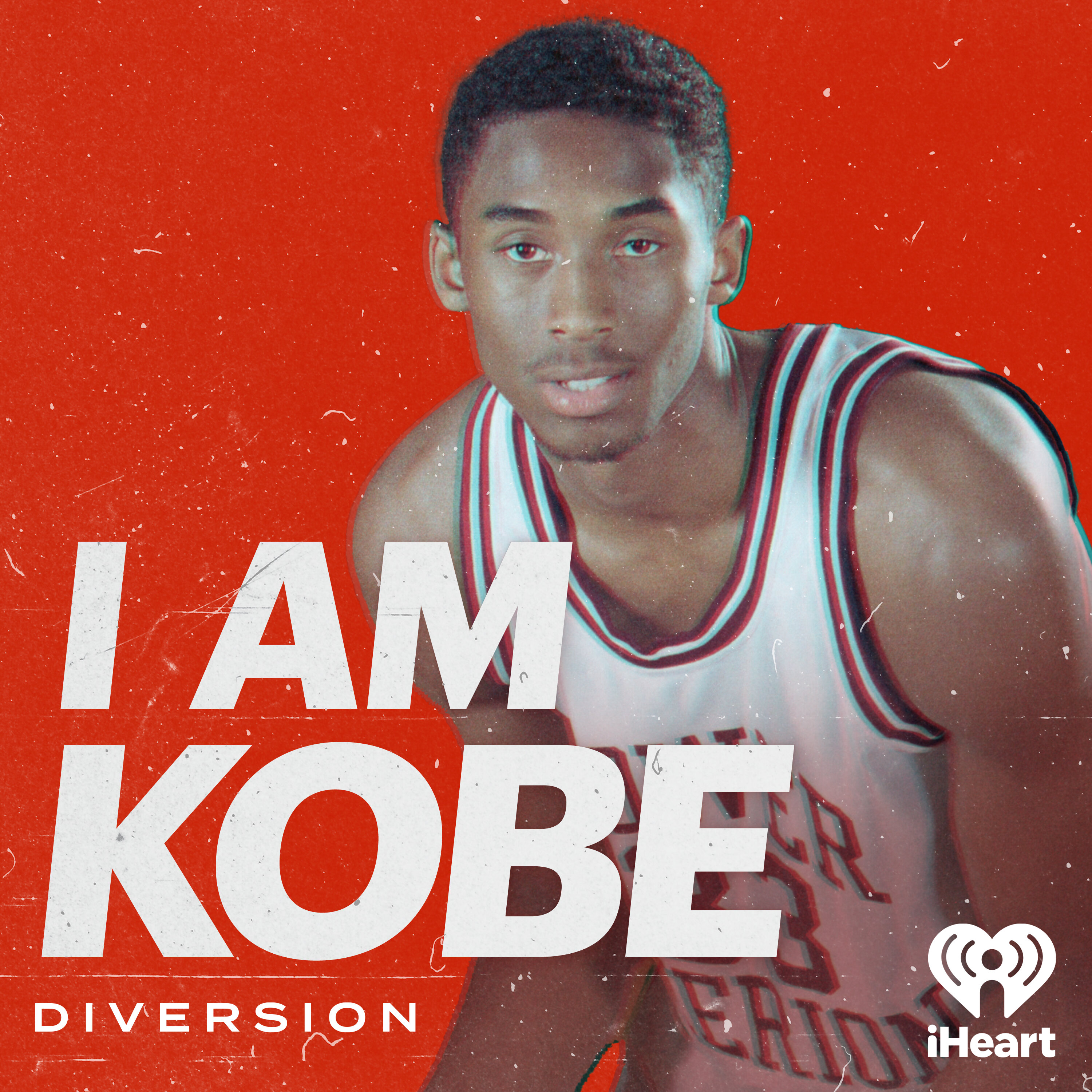
I Am Kobe
iHeartPodcasts and Diversion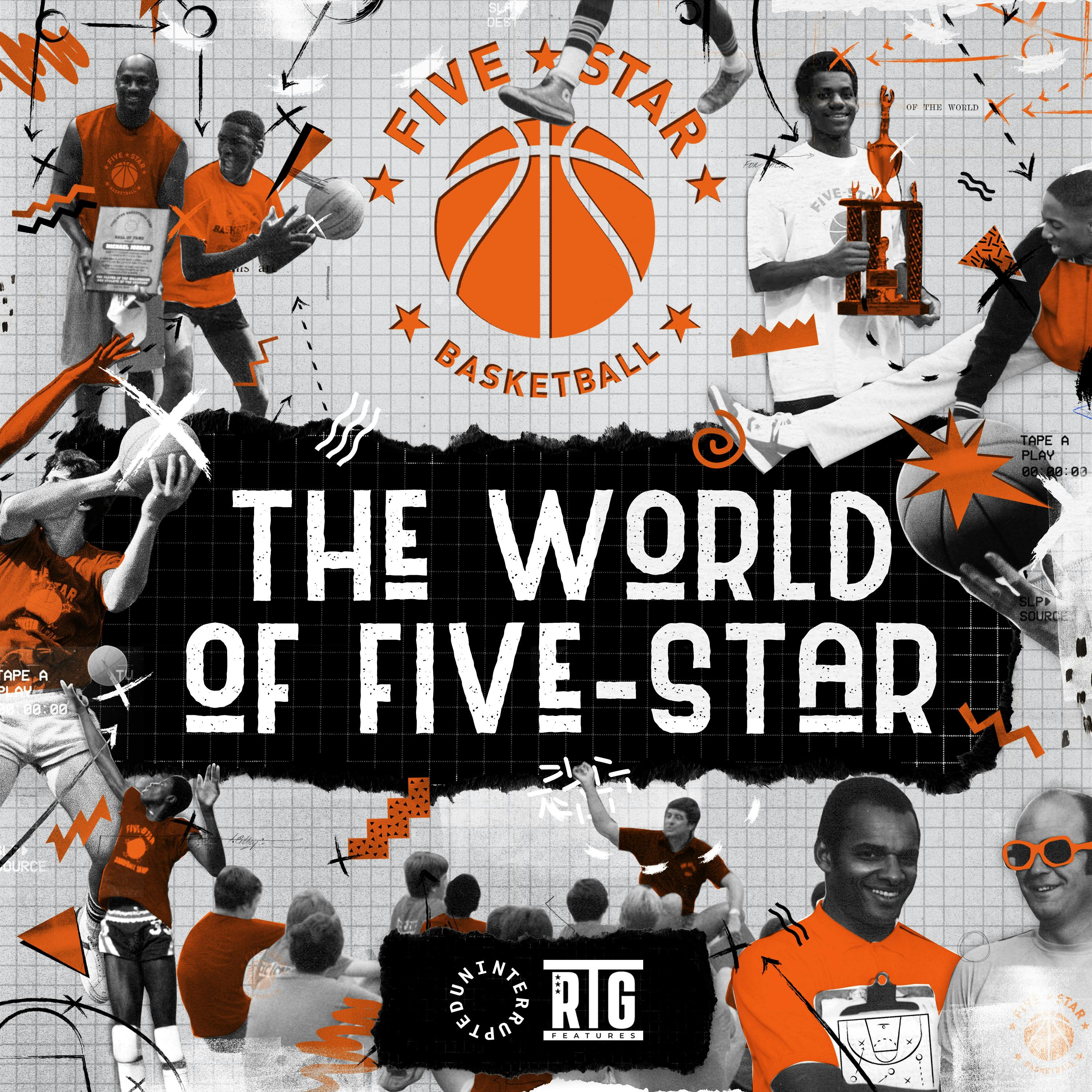
The World of Five-Star
UNINTERRUPTED x RTG Features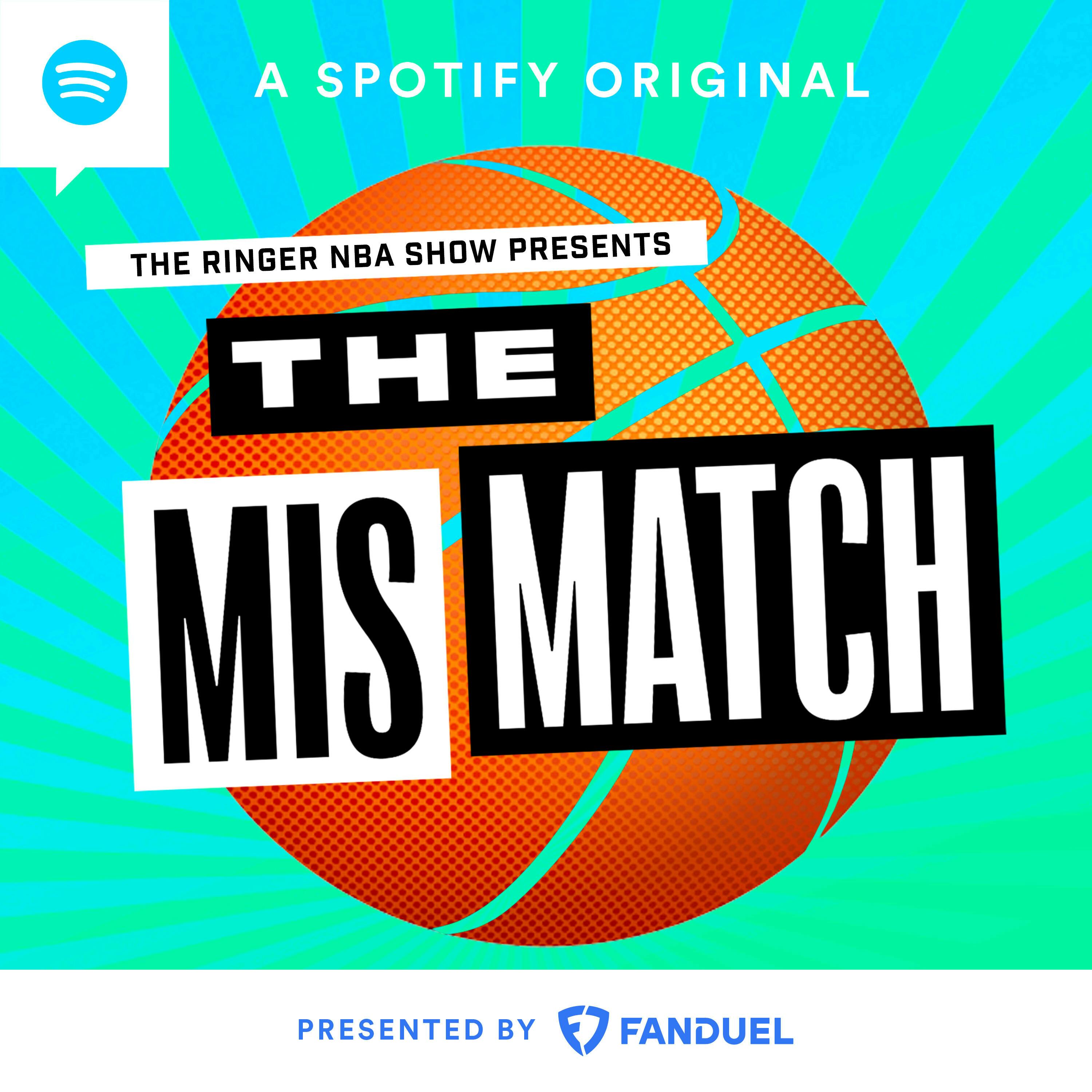
The Mismatch
The Ringer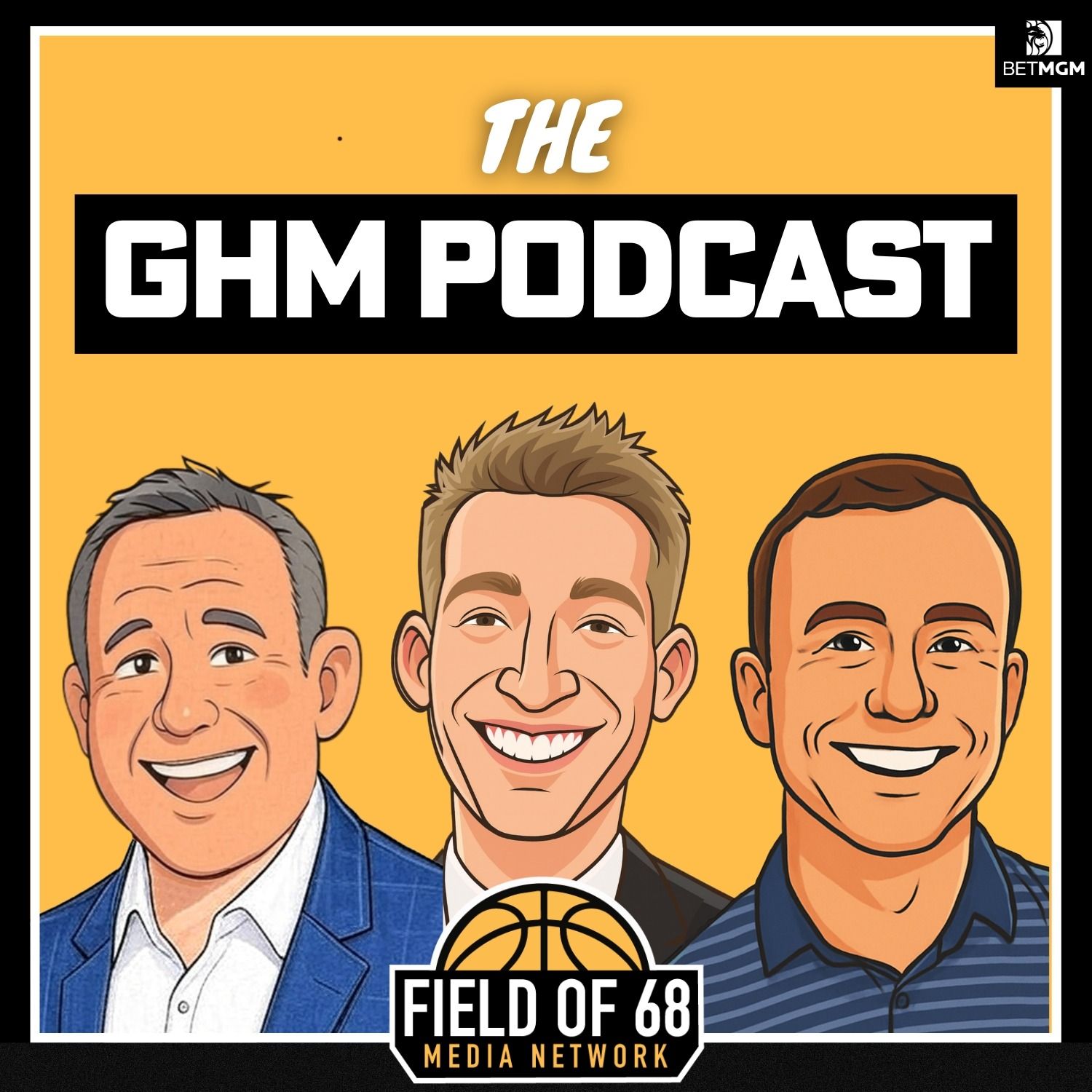
The Goodman, Hummel & McCall Podcast
The Field of 68, Blue Wire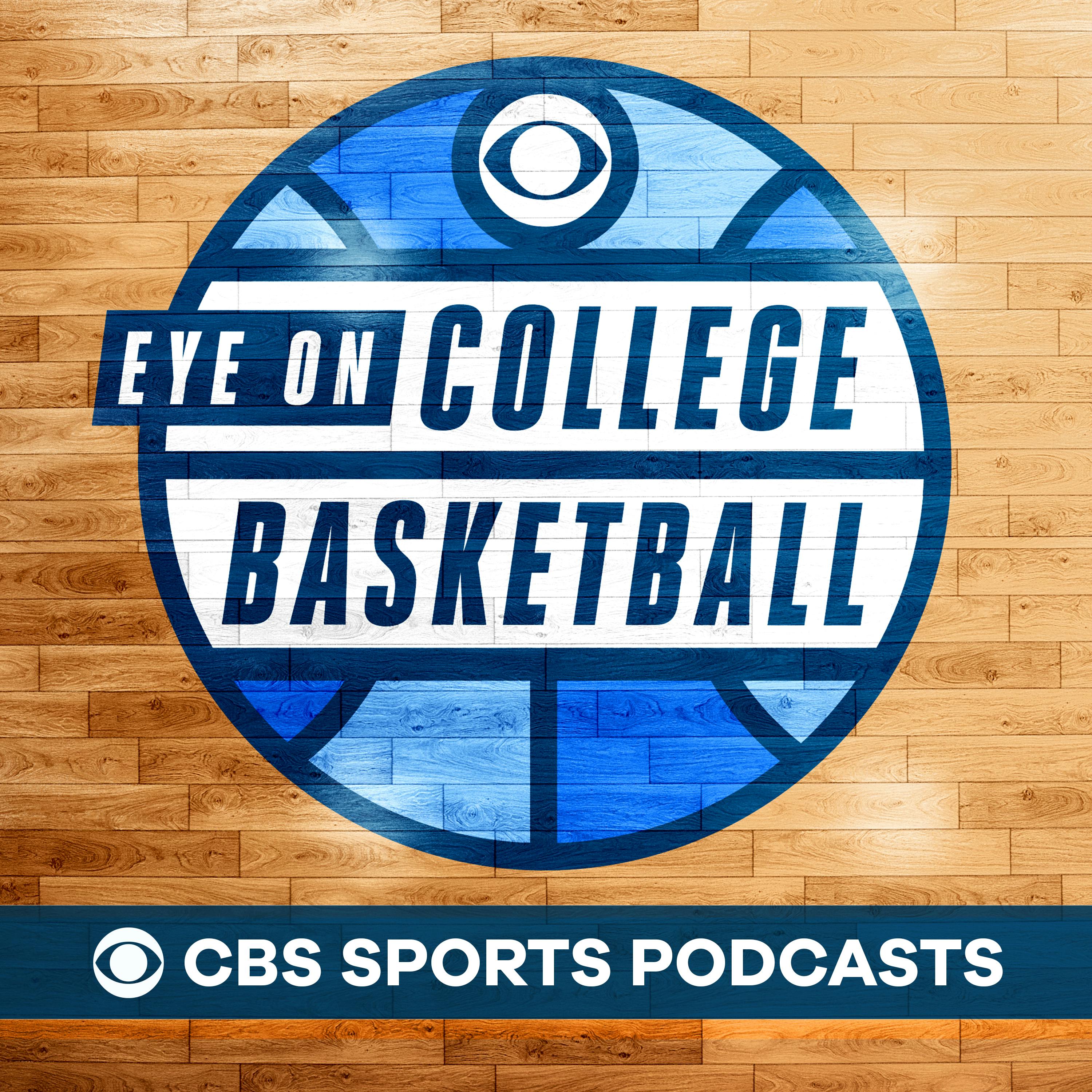
Eye On College Basketball
CBS Sports, College Basketball, Basketball, March Madness, NCAA Tournament, NBA Draft
Cookies: A Basketball Podcast
COOKIES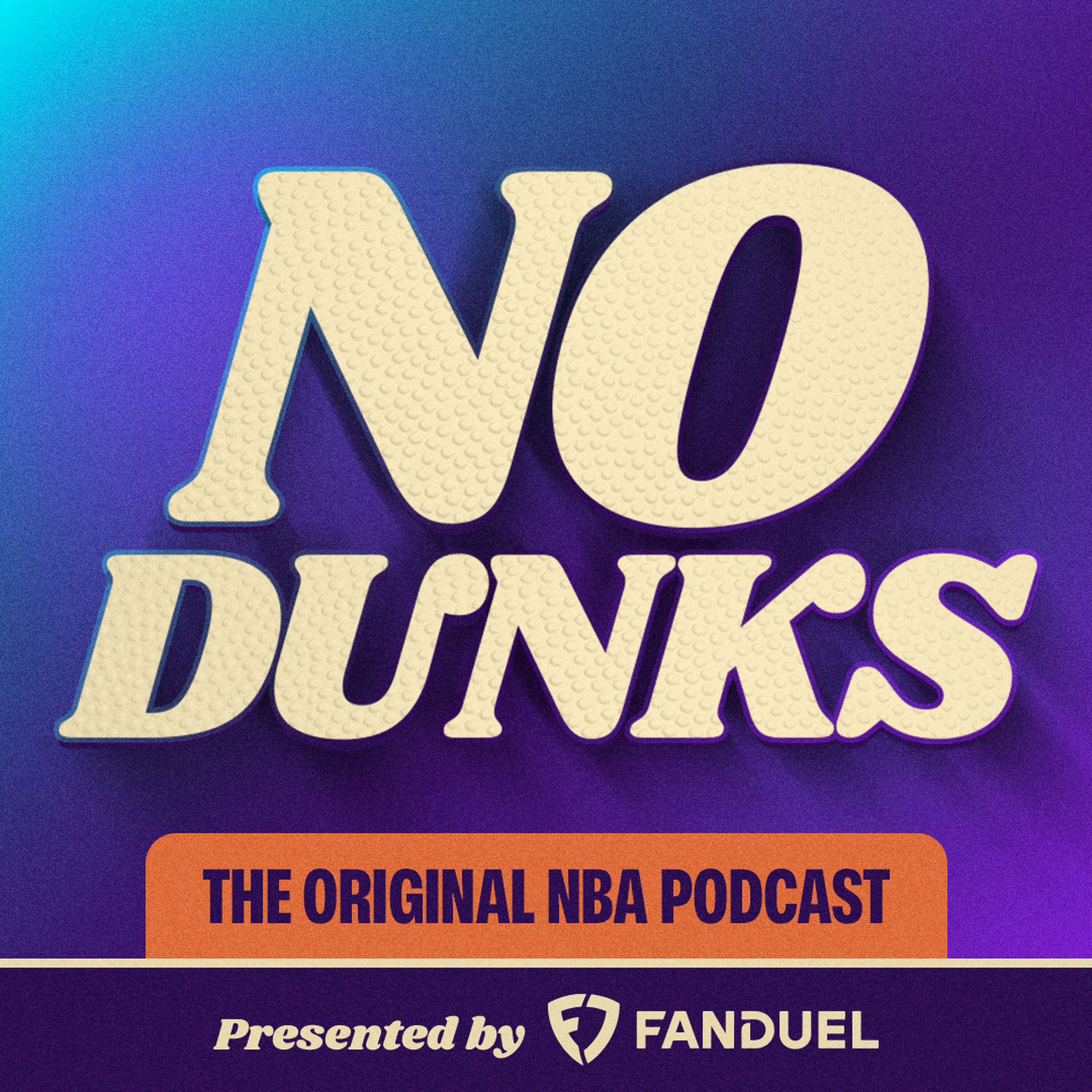
No Dunks
iHeartPodcasts
Run It Back
Truth + Media
Death at the Wing
Hyperobject Industries / Sony Music Entertainment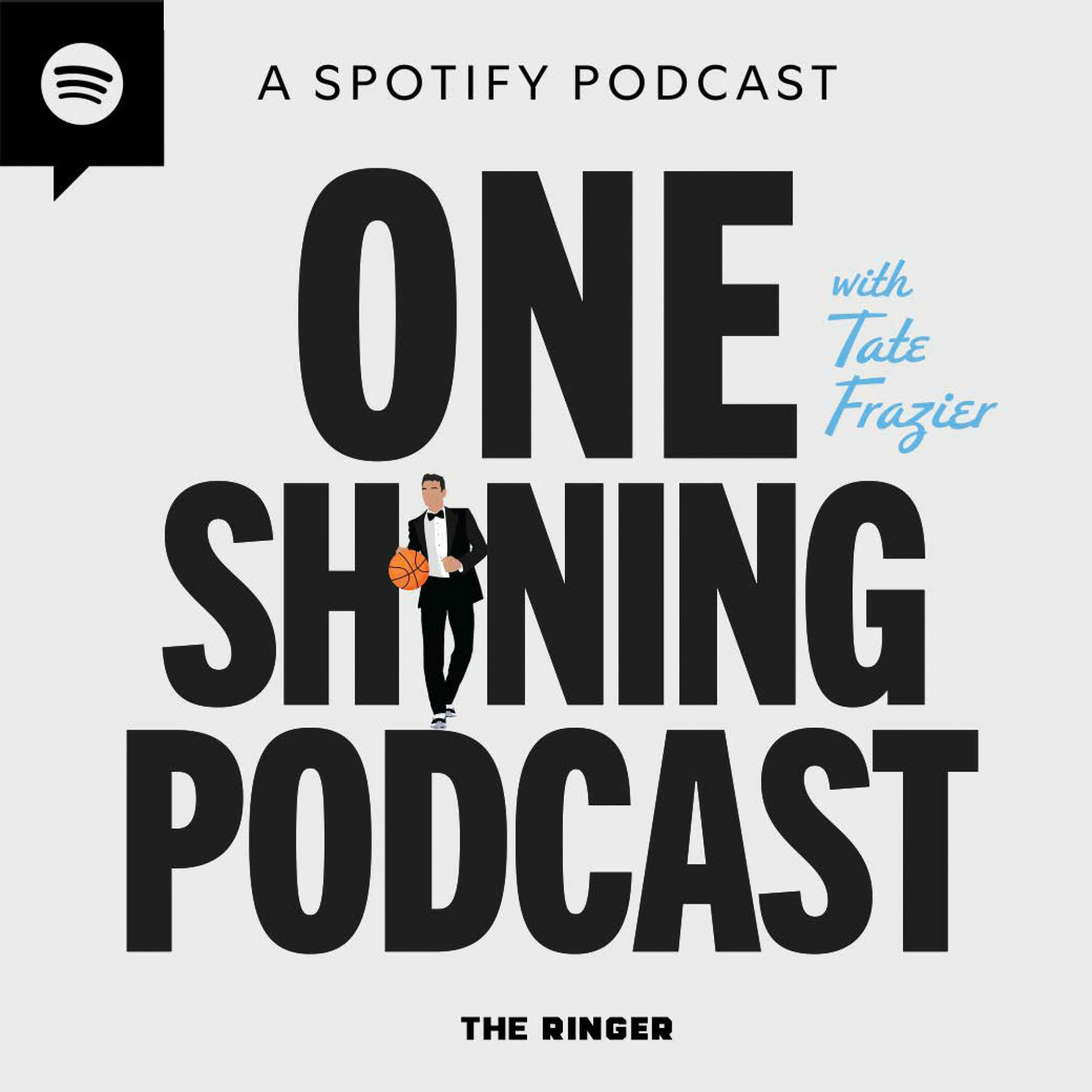
One Shining Podcast with Tate Frazier
The Ringer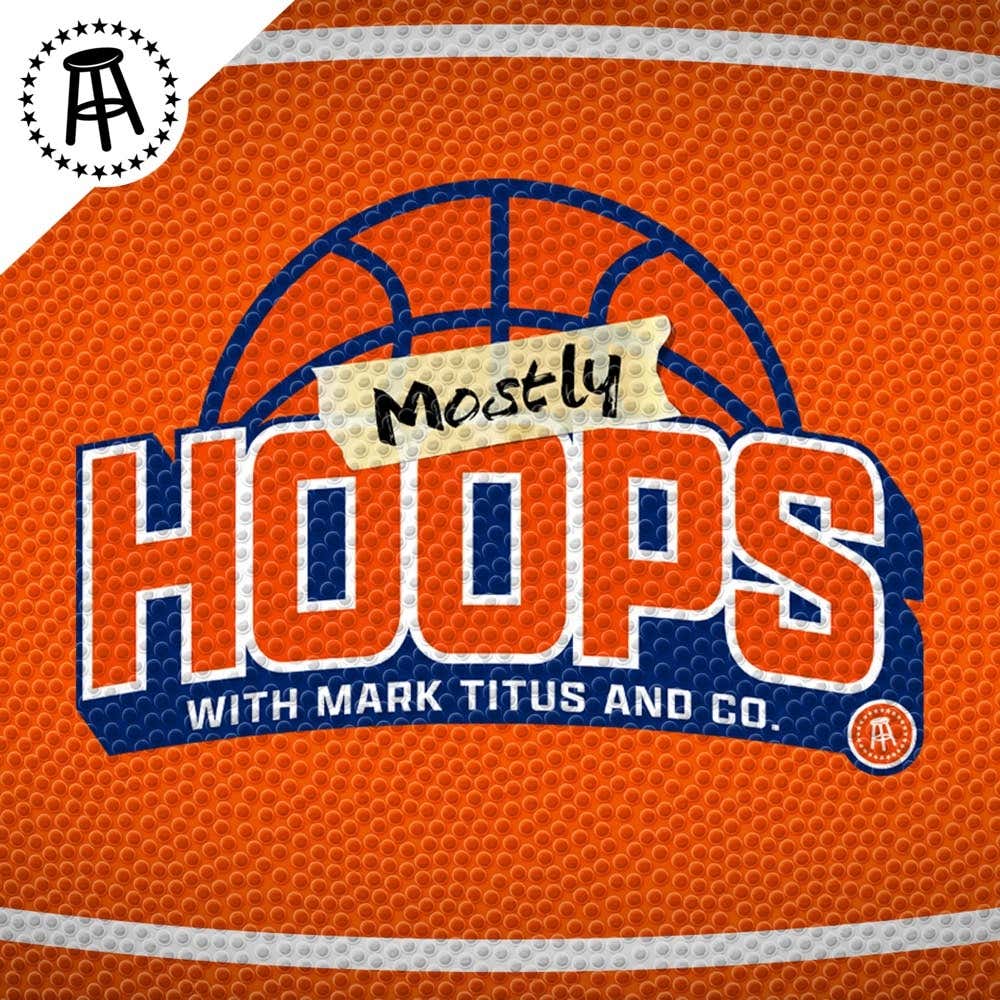
Mostly Hoops with Mark Titus and Co.
Barstool Sports
The Old Man and the Three
ThreeFourTwo Productions | Wondery
Three Man Weave: College Basketball Podcast
Three Man Weave: College Basketball Podcast